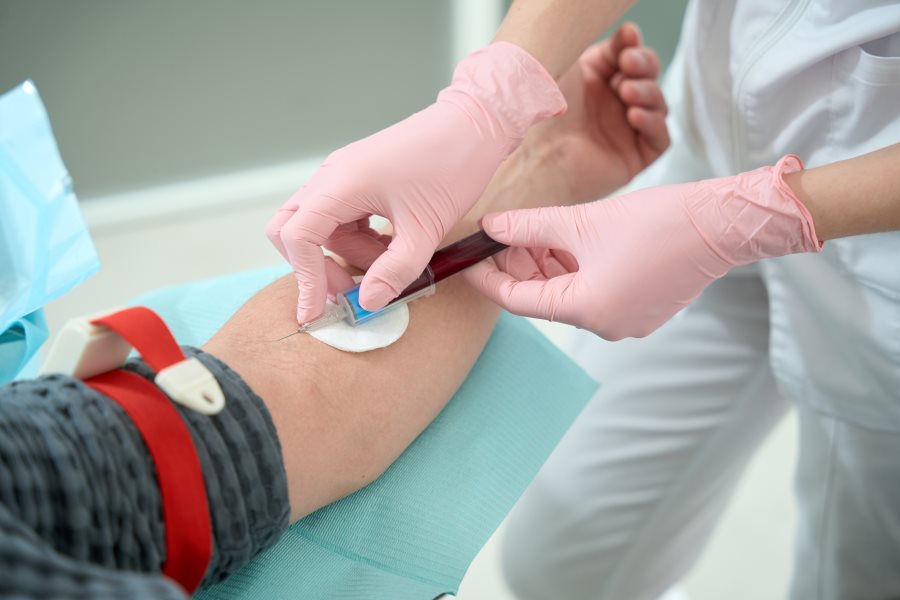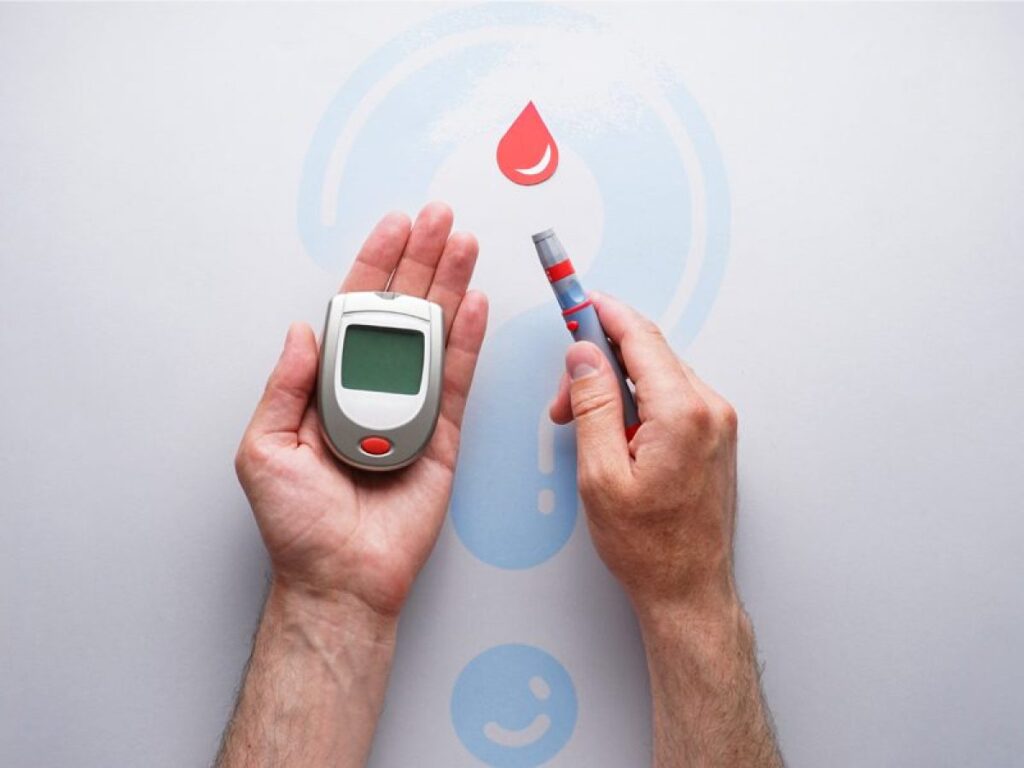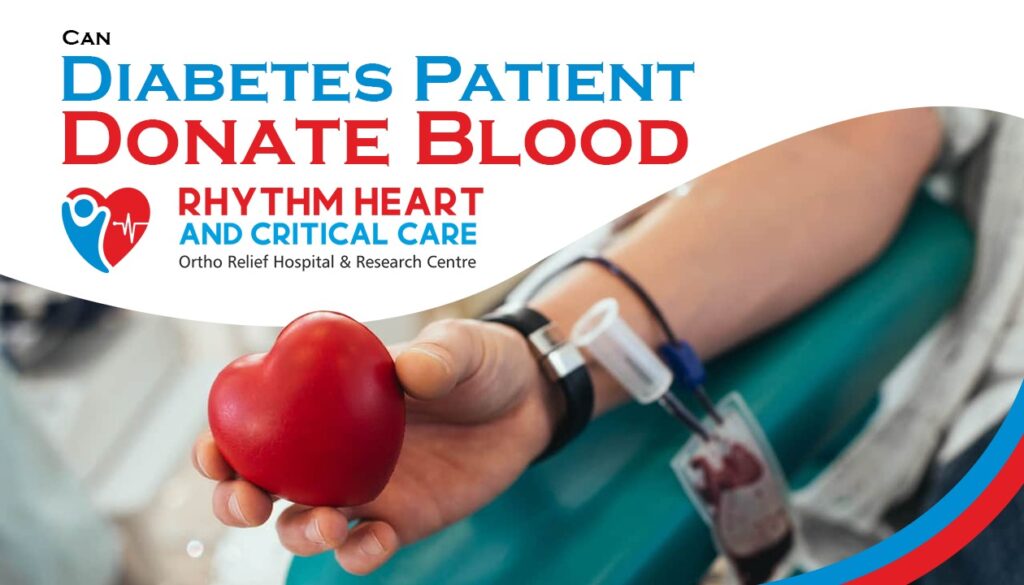Blood donation is a beautiful feeling because it is an effective method to help people. It allows both receivers and donors. Some medical problems prevent you from donating blood.
In the world, the common question arises: Can diabetes patients donate blood? So the answer is Yes. However, you need to know some specific conditions before you may give blood for the safety of both the donor and the recipient.
Does Diabetes Types 1 and 2 affect blood donation?
If you have type 1 or type 2 diabetes, so you don’t need to be afraid because you are obviously eligible to donate blood. But you have to keep your diabetes under control and keep in good health before donating blood. Maintaining a healthy lifestyle, eating a proper diet for nutrition, exercising regularly, and taking proper medicines are also important. This means your blood sugar levels will always remain within the normal range. You should always take proper treatment and advice from your doctor.

Some points should be considered before donating blood
Blood donation is eligible for diabetics provided that:
- You are currently not receiving diabetic therapy despite having a diagnosis of pre-diabetes or gestational diabetes.
- Your diet alone is controlling your diabetes.
- You feel healthy even after taking the exact dosage of medicine for almost four weeks.
Blood donation is not eligible for diabetics:
- If you are receiving insulin therapy.
- If you have previously taken cattle-derived bovine insulin
- Experienced heart failure
- Received a transplant of pancreatic tissue.
Read Also: Benefits of Exercise
How can diabetes patients get ready to donate blood?
Here is how you can go about giving blood and have a better experience. You should get ready before giving blood.
- You should get proper 8 hours of sleep.
- When you go to give blood, you must eat a healthy meal to prevent dizziness and headaches.
- Take a limited amount of caffeine the day you donate blood.
- You should avoid the drugs.
- A few days before the blood donation you should increase water intake.

What is the process for donating blood?
Before the blood donation process starts, a qualified medical professional will ask you to disclose any pre-existing medical conditions you may have. Additionally, the individual will examine your fundamental vital indicators, including blood pressure, temperature, pulse, and hemoglobin levels. You could also be asked other questions.
The details of the drugs you use to control your diabetes must be disclosed. This will determine whether or not you are eligible to donate blood. Additionally, you must meet the following requirements before donating blood.
- You have to be at least eighteen.
- During a fast, your blood sugar level is below 140 mg/dL.
- The range of your HbA1c levels is 6.0% to 6.4%.
- You’re not anemic, and you’re not using insulin.
- A value of 120/80 mmHg is too high.
- The entire blood donation process might take you around an hour and a half. Giving blood takes about five minutes.
Factors that can prevent a diabetic from giving blood
Although diabetics people can give blood, several conditions may prevent them from doing so. As a result, before donating blood, you must carefully evaluate these issues.
1. Blood glucose levels.
You can only give blood if your blood sugar levels are within normal limits and you are in excellent health. Before donating blood, you must first acquire a doctor’s approval.
2. Insulin
Type 1 and type 2 diabetics who are insulin dependent are ineligible to give blood due to health hazards. Furthermore, if they utilize bovine insulin, the receiver may be at increased risk of developing mad cow disease. This illness has a low risk of spreading through blood transfusions.
3. Diabetes Medication
You can give blood if your blood sugar medicines and dosages have not changed in the last four weeks. Recent drug changes may have an impact on your blood sugar levels, putting your health in danger.
4. Cardiovascular problems
You are disqualified for the donation if you have previously had or are presently suffering from a heart condition. Donating blood with heart issues may cause you to feel faint, disoriented, or have trouble breathing. People with heart difficulties have trouble getting enough oxygen into their bodies.
5. Prediabetes
If you have pre-diabetes, you can only give blood if you are not using any diabetic medications and your blood sugar levels are within normal limits.
Conclusion:
So, Can diabetes patients donate blood? Yes, they may, as long as their disease is under control, they fulfill the qualifying conditions, and their healthcare professional permits them. Diabetes patients may safely engage in this life-saving gesture and have a good influence on their communities if they follow these rules. Prioritize your health and check with your doctor before giving blood.







